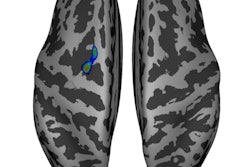MRI scans can reliably detect a severe brain condition in fetuses as early as the 18th week of gestation, according to a study published online May 18 in the American Journal of Medical Genetics.
The condition, known as holoprosencephaly, occurs when the fetal brain does not divide correctly into right and left hemispheres. An embryonic forebrain generally separates into two halves by the fifth or sixth week of a pregnancy, but holoprosencephaly occurs in 1.2 to 2.2 of every 10,000 live births and can lead to severe intellectual disability.
In the study, researchers from Children's National Health System in Washington, DC, used MRI to identify variants of the condition, including the following:
- Aprosencephaly/atelencephaly, which is considered the most severe form of the condition and is accompanied by a range of facial deformities
- Alobar, which is associated with a single, midline forebrain and a holosphere shaped like a pancake, cup, or ball
- Middle interhemispheric, which is marked by normal separation of the frontal and occipital poles but lack of separation in portions of the more posterior aspects of the frontal lobes and parietal lobes; craniofacial defects have not been described in patients with this variant


.fFmgij6Hin.png?auto=compress%2Cformat&fit=crop&h=100&q=70&w=100)





.fFmgij6Hin.png?auto=compress%2Cformat&fit=crop&h=167&q=70&w=250)











